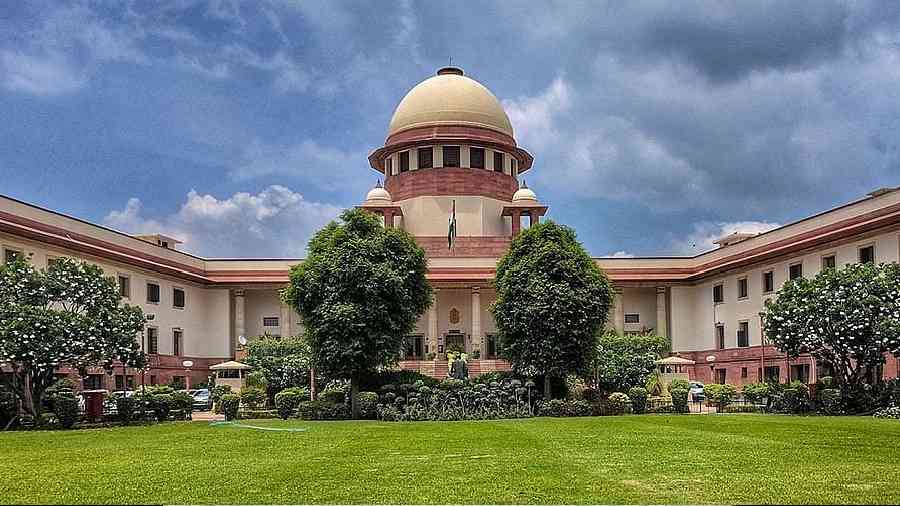The Supreme Court has said freedom of the press has been “effectively trumped” by the I&B ministry denying security clearance to Madhyamam Broadcasting Limited, and faulted the single judge and the division bench of Kerala High Court for accepting the “sealed cover” report submitted by the Centre “without any application of mind”.
“On the facts of the case, MIB (ministry of information and broadcasting) has denied to disclose even the summary of the reasoning denying security clearance. This has necessarily left MBL with no remedy. It is crucial to note that the freedom of press which is protected under Article 19(1)(a) has effectively been trumped without providing them with an effective and reasonable avenue to challenge the decision. This infringes upon the core of a right to fair hearing. The appellants have proved that the disclosure of reasons is necessary for them to have a reasonable hearing,” the bench of Chief Justice D.Y. Chandrachud and Justice Hima Kohli observed.
The bench noted that the home ministry had disclosed only to the high court the material that formed the basis for refusing security clearance. “The high court, instead of deciding if any other less restrictive but equally effective means could have been employed, straightaway received the material in a sealed cover without any application of mind,” the judges said.
“To argue that reports of the intelligence agencies may contain confidential information is one thing but to argue that all such reports are confidential is another. Such an argument is misplaced and cannot be accepted on the touchstone of constitutional values. The reports by investigative agencies impact decisions on the life, liberty and profession of individuals and entities, and to give such reports absolute immunity from disclosure is antithetical to a transparent and accountable system,” the court said.
The bench said it was an established principle of natural justice that relevant material must be disclosed to the affected party. This ensures that the affected party is able to effectively exercise their right to appeal.
“When the government claims non-disclosure on the ground of public interest under Section 124 of the Evidence Act, the material is removed from the trial itself. As opposed to this method, when relevant material is disclosed in a sealed cover, there are two injuries that are perpetuated. First, the documents are not available to the affected party. Second, the documents are relied upon by the opposite party (which is most often the state) in the course of the arguments, and the court arrives at a finding by relying on the material.
“In such a case, the affected party does not have any recourse to legal remedies because it would be unable to (dis)prove any inferences from the material before the adjudicating authority,” Justice Chandrachud said.
The top court said this form of adjudication “perpetuates a culture of secrecy and opaqueness, and places the judgment beyond the reachof challenge. The affected party would be unable tocontradict errors, identify omissions, challenge the credibility of informants or refute false allegations”.
National security is one of the few grounds on which the right to a reasonable procedural guarantee may be restricted but the mere involvement of issues concerning national security would not preclude the state’s duty to act fairly, it said.
Kerala High Court had failed to apply its mind and merely accepted the sealed cover report, the bench said.
The division bench of the high court had observed that though the nature and gravity of the issue were not discernible from the files, there were clear indications that the security of the state and public order would be impacted if the permission granted to Media One to operate the channel was renewed.
“The Division Bench has also not disclosed the reasons for the denial of security clearance. There is no explanation of what weighed in the mind of the court leading it to hold that the denial of clearance was justified despite observing that the nature and gravity of the issue are not discernible. The sealed cover procedure followed by the Single Judge and the Division Bench has necessarily rendered the appellant’s right to writ remedies, which has been described as the ‘heart and soul’ of the Constitution and a basic feature of the Constitution, a dry parchment,” the bench said.
“The procedure that was followed by the High Court has left the appellants in a maze where they are attempting strenuously to fight in the dark. The non-disclosure of reasons for denial of security clearance to the appellants and the disclosure solely to the Court in a sealed cover has restricted the core of the principles of the natural justice — the right to a fair and reasonable proceeding,” Justice Chandrachud observed.
The bench also said: “The MHA has made a general claim that all reports of the investigative agencies are confidential. We are unable to accept such an argument.”











